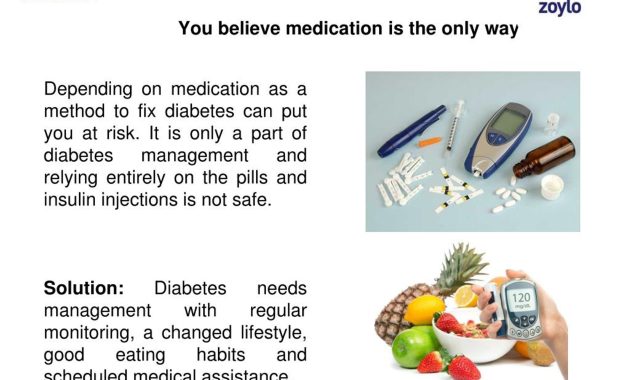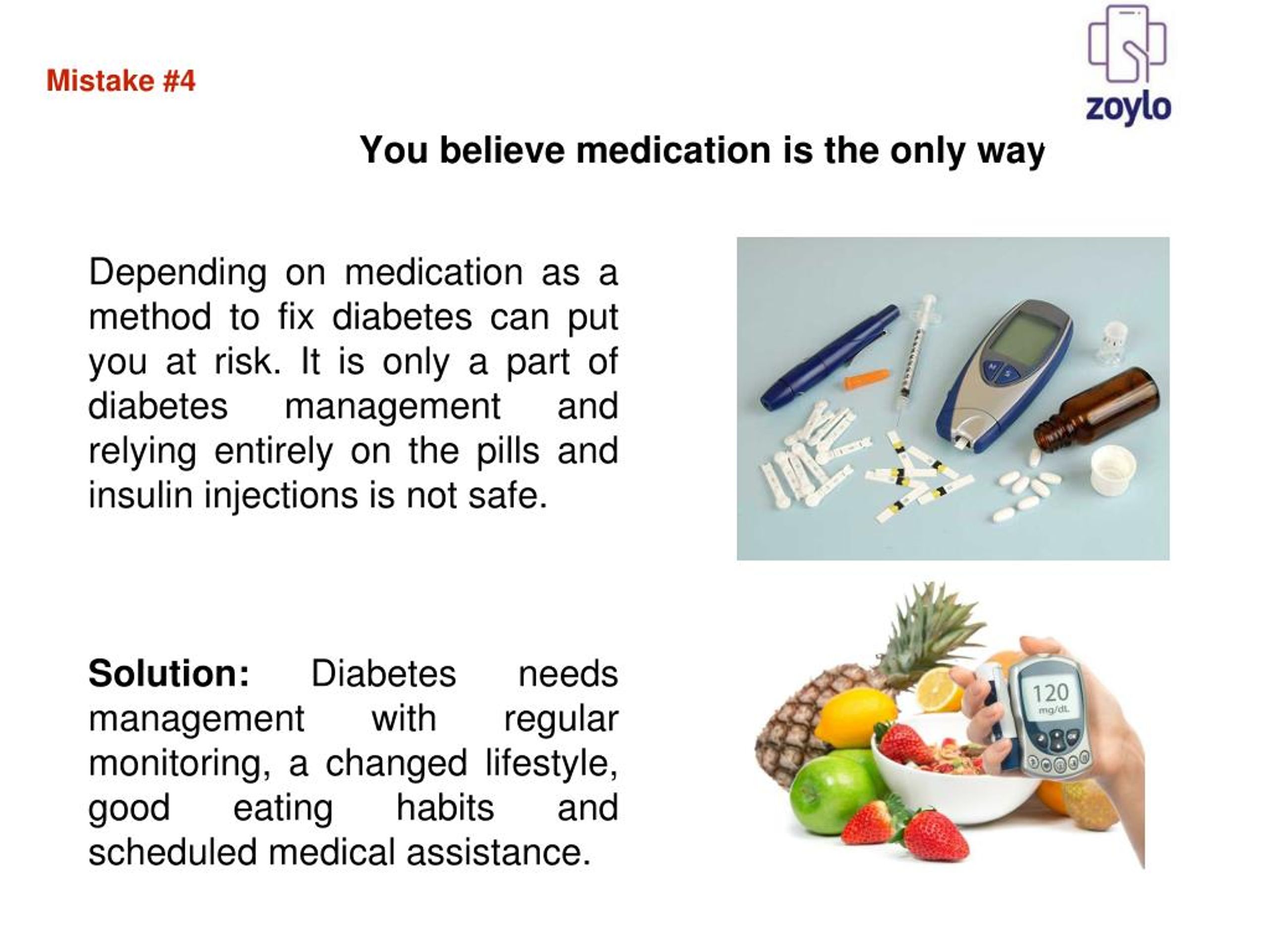
How to Avoid Diabetes Mistakes Most People Still Make Daily
Diabetes, a chronic metabolic disorder, affects millions worldwide. It requires constant management. Many people, unfortunately, still fall prey to common pitfalls. These mistakes can hinder effective diabetes control. This article will explore these frequent errors. We will provide practical strategies to avoid them. Our goal is to empower you with knowledge. This knowledge will help you navigate the complexities of diabetes. We aim to promote better health outcomes.
Understanding the Scope of the Problem
Diabetes prevalence is on the rise. This increase highlights the urgency of the matter. Understanding the disease is crucial. This understanding involves recognizing the various types of diabetes. It also encompasses the importance of early detection. Early intervention is key to preventing complications. These complications include heart disease, kidney failure, and nerve damage. The World Health Organization (WHO) estimates that millions live with diabetes. Many are undiagnosed. Proper management is thus essential.
Mistake One: Neglecting Blood Sugar Monitoring
Regular blood sugar monitoring is the cornerstone of diabetes management. Failing to monitor blood sugar levels is a significant mistake. It prevents individuals from understanding how their bodies respond to food. It also affects physical activity. Monitoring helps identify trends and patterns. This identification allows for timely adjustments to medication. It also helps with lifestyle choices. Many people with diabetes do not check their blood sugar frequently enough. Some avoid it altogether. This lack of monitoring can lead to dangerous highs and lows. It can also lead to long-term health problems. Use a glucose meter and test strips. The meter is used to measure blood glucose.
The frequency of monitoring varies. It depends on the type of diabetes. It also depends on individual treatment plans. Your healthcare provider will advise you. They will recommend the best schedule. This schedule will suit your needs. It is usually before meals, after meals, and before bed. Keep a log of your readings. Share this log with your healthcare team. This sharing is important at every checkup. This helps optimize your care plan.
Mistake Two: Ignoring Dietary Guidelines
Diet plays a critical role in managing diabetes. Many people make the mistake of not following dietary guidelines. They might consume excessive carbohydrates. They may also eat too much processed food. These habits can lead to significant blood sugar spikes. These spikes make it difficult to control diabetes. A well-balanced diet is essential. It should include complex carbohydrates. It should also include lean proteins and healthy fats. Portion control is also crucial. Overeating can also lead to weight gain. This weight gain can worsen insulin resistance. Consult a registered dietitian. They can help you create a personalized meal plan. A meal plan is designed to meet your specific needs. It should also consider your lifestyle.
Focus on whole foods. These include fruits, vegetables, and whole grains. Limit sugary drinks, processed foods, and saturated fats. Read food labels carefully. This helps monitor your carbohydrate intake. Be mindful of portion sizes. This will help in maintaining a healthy weight. This will help in managing blood sugar levels effectively. Dietary mistakes significantly impede diabetes control.
Mistake Three: Skipping Medication
Adhering to your medication schedule is crucial. Skipping doses is a common mistake. It can have serious consequences. Many medications work to lower blood sugar. Others assist in improving insulin sensitivity. When you skip doses, blood sugar levels can fluctuate. This fluctuation can lead to hyperglycemia or hypoglycemia. Hyperglycemia means high blood sugar. Hypoglycemia means low blood sugar. Both conditions pose risks. Always take your medication as prescribed. Set reminders if needed. If you experience side effects, consult your doctor. Never adjust your dosage without medical advice. Communicate openly with your healthcare team. This ensures you are on the right track.
Mistake Four: Lack of Physical Activity
Physical activity is a powerful tool in diabetes management. A sedentary lifestyle is a major mistake. Exercise helps improve insulin sensitivity. This helps your body use insulin more effectively. It also helps control blood sugar levels. Regular exercise also helps with weight management. It also improves cardiovascular health. Aim for at least 150 minutes of moderate-intensity exercise per week. This can be brisk walking, swimming, or cycling. Include strength training exercises at least twice a week. This will help build muscle mass. Muscle mass increases insulin sensitivity. Consult your doctor before starting any new exercise program. This will help ensure your safety. Choose activities you enjoy. This will increase the likelihood of sticking with them.
Mistake Five: Ignoring Mental Health
Diabetes can take a toll on mental health. Many people overlook the emotional aspects. Stress, anxiety, and depression can impact blood sugar levels. They can also influence self-care behaviors. Ignoring these issues is a significant mistake. Seek support from a therapist or counselor. Practice stress-reduction techniques. These can include yoga, meditation, and deep breathing. Join a support group. Connecting with others who understand can be invaluable. Prioritize your mental well-being. This is as important as your physical health. Take care of both aspects. This will help you manage your diabetes effectively.
Mistake Six: Lack of Regular Checkups
Regular checkups are essential for diabetes management. Many people miss their scheduled appointments. These appointments are crucial for monitoring your overall health. They also help in preventing complications. During checkups, your doctor will assess your blood sugar control. They will also check for any potential complications. These complications include eye problems, kidney issues, and nerve damage. They will also provide necessary advice. They will also make adjustments to your treatment plan. Schedule regular appointments. Keep up with all recommended screenings. This is vital for early detection. Early detection is critical for treating complications. This is also important for maintaining your overall health.
Mistake Seven: Poor Foot Care
Foot problems are a common complication of diabetes. Many people overlook foot care. This is a significant mistake. High blood sugar can damage nerves and blood vessels in your feet. This can lead to neuropathy and poor circulation. Check your feet daily. Look for any cuts, blisters, or sores. Wash your feet daily. Use warm water and mild soap. Dry your feet thoroughly. Apply lotion to keep your skin moisturized. Wear properly fitting shoes. Avoid walking barefoot. See a podiatrist regularly. They can address any foot problems early. This helps prevent serious complications. This should be a part of your daily routine.
Mistake Eight: Not Educating Yourself
Diabetes management requires continuous learning. Many people fail to educate themselves. This is a significant mistake. Stay informed about the latest advancements. This includes new treatments and technologies. Attend diabetes education classes. Read reliable sources of information. This can be books, websites, and support groups. Knowledge is power. The more you know, the better equipped you will be. You will be better equipped to manage your condition. You will also make informed decisions. This will lead to better outcomes. Strive to learn more about diabetes. This will empower you to take control of your health.
Mistake Nine: Ignoring the Importance of Sleep
Sleep plays a critical role in regulating blood sugar. Many people underestimate its significance. Poor sleep can worsen insulin resistance. It can also disrupt hormone balance. This can make diabetes control more challenging. Aim for 7-9 hours of quality sleep each night. Create a relaxing bedtime routine. This could include reading or taking a warm bath. Avoid caffeine and alcohol before bed. Ensure your bedroom is dark, quiet, and cool. If you have trouble sleeping, talk to your doctor. They can help you identify and address the problem.
Mistake Ten: Not Seeking Professional Help
Many people try to manage diabetes on their own. Not seeking professional help is a mistake. Diabetes management requires a team of healthcare professionals. This includes doctors, nurses, dietitians, and educators. Consult with your healthcare team regularly. This will help you develop a personalized care plan. Attend all scheduled appointments. Ask questions. Share any concerns you may have. Do not hesitate to seek help. This is a critical step. It is essential for successful diabetes management.
Conclusion: Taking Control of Your Health
Avoiding these common mistakes is crucial. It is important for effective diabetes management. By understanding these pitfalls, you can take proactive steps. You can improve your health outcomes. Prioritize blood sugar monitoring. Follow dietary guidelines. Adhere to your medication schedule. Incorporate regular physical activity. Address your mental health. Attend regular checkups. Practice good foot care. Educate yourself about diabetes. Prioritize sleep. Seek professional help. This comprehensive approach will help you manage your diabetes. It will also help you live a healthier, more fulfilling life.
Diabetes is a complex disease. Successful management requires diligence and commitment. It is also essential to take an active role. Take an active role in your own care. By avoiding these common mistakes, you can significantly improve your health. This will also improve your overall quality of life. Remember, you are not alone. Support and resources are available.
[See also: Related Article Titles]

